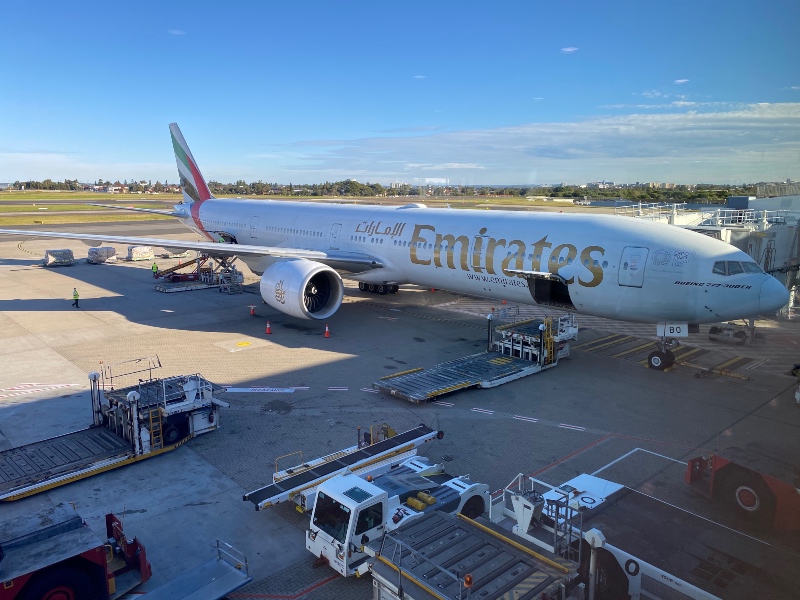
Following successive price increases in 2022, Emirates’ fuel surcharges (sometimes referred to as “carrier charges”) are now among the highest of any airline in the world. In fact, the additional taxes & charges on a return Emirates Business or First Class reward booking from Australia to the Americas are now almost $5,000 per passenger!
This is bad news for people who want to redeem Emirates Skywards miles, Qantas Frequent Flyer points or any other currency to book award seats on Emirates flights.
Anyone redeeming points for a reward ticket on Emirates needs to pay these fuel surcharges in full, except infants under two years old who do not occupy their own seat. That’s in addition to the points or miles required, plus all of the genuine government taxes and airport charges that also need to be paid!
Many other airlines, including Qantas and Virgin Australia, also impose fuel or carrier surcharges on frequent flyer redemption bookings. But Emirates’ fuel surcharges are now so high that the additional fees and charges on a round-trip Emirates Business Class booking from Sydney to London add up to $3,903.68 per person.
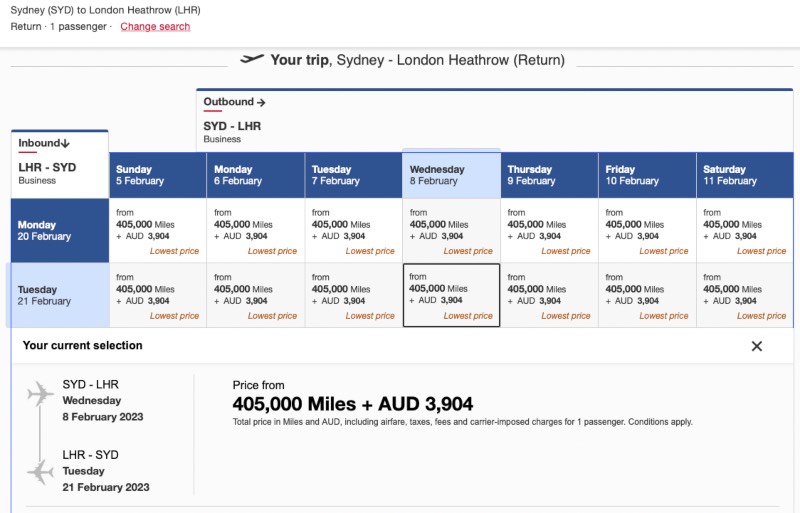
The taxes & charges would be identical on a Qantas Frequent Flyer reward booking for travel on Emirates – assuming you could find some rare award availability.
Of this amount, around $605 is for third-party government taxes and airport fees, including the UK Air Passenger Duty. The other $3,299 goes straight to Emirates.
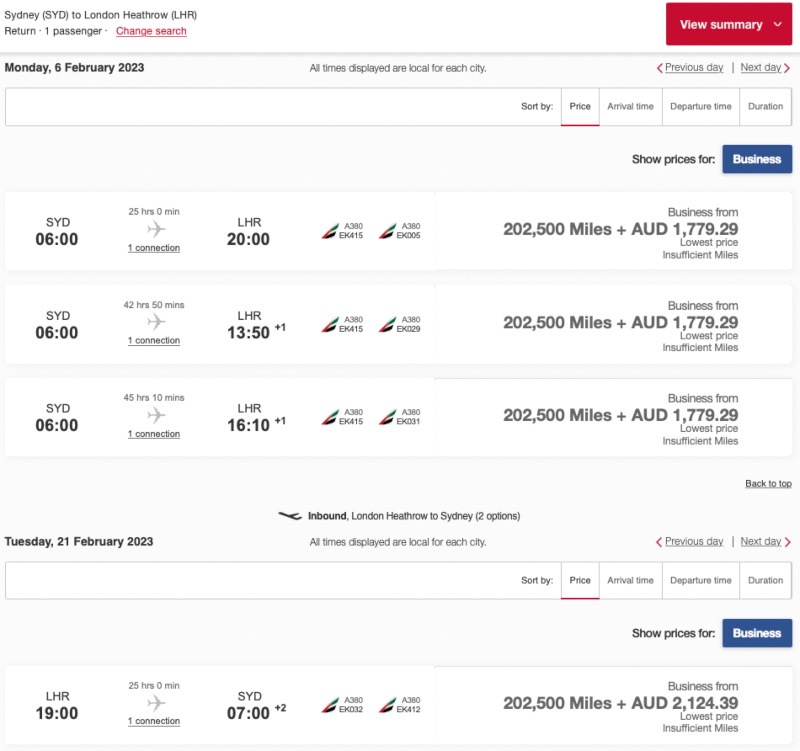
On a round-trip redemption from Perth to New York via Dubai, in Emirates Business or First Class, the additional taxes & charges are an even higher $4,723 per passenger. This amount includes $237 worth of third-party government taxes & airport fees. The other $4,486, or around 95% of the amount payable, is Emirates fuel surcharges!
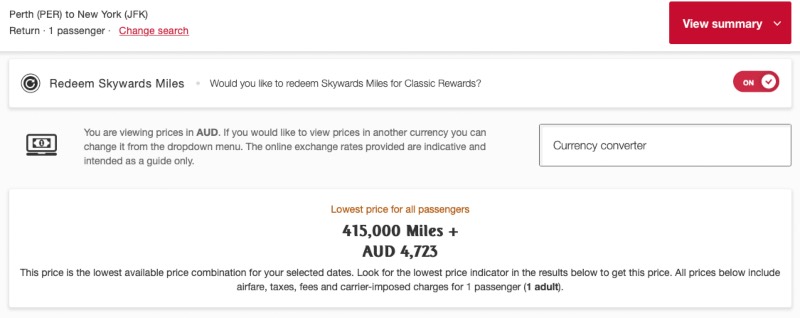
For a family of four, that would amount to almost $19,000 in additional taxes & fees when redeeming Emirates Skywards miles or Qantas points to fly to New York and back in Business or First Class on what is supposed to be a “reward” ticket!
Emirates is not being upfront about these surcharges
Disappointingly, the Emirates website is also somewhat misleading about the nature of these additional charges.
On the Frequently Asked Questions page of the Emirates website, one of the questions is “Why am I asked for a credit card when buying a flight with my Miles?” The answer states that “airport taxes are compulsory and are not taken by the airline but are usually charged by governments or airport management companies”.
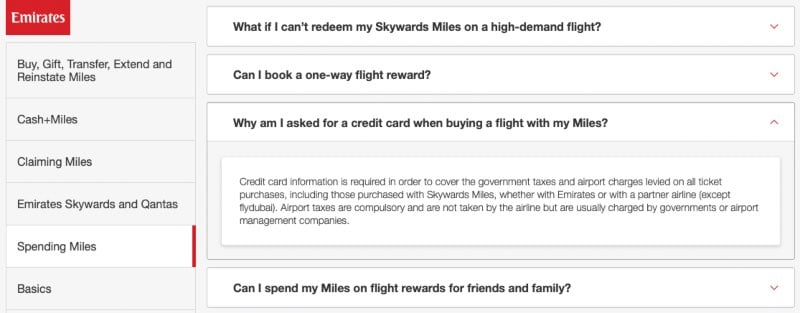
We asked Emirates whether they agreed some people could find this misleading. An Emirates spokesperson issued the following statement:
Emirates Skywards members can use any number of Miles to contribute to a flight ticket purchase with Cash+Miles or to book a Classic Reward ticket. Additional taxes such as carrier, government and airport charges are levied on all tickets, including those purchased with Skywards Miles. Customers can review the additional costs before completing the booking and for Classic Rewards have the option to cover the Carrier Imposed Charges using Miles. Other applicable taxes such as the compulsory airport tax not taken by the airline, can be paid online with a valid credit card.
How much are Emirates fuel surcharges on other routes?
Emirates does not widely publicise its fuel surcharges. But as it happens, the airline is required by law to publish the amounts applicable to bookings originating in South Korea on its Korean website.
In the table below, you’ll find the Emirates carrier charges payable (excluding genuine third-party taxes) for a one-way Emirates Skywards or Qantas Frequent Flyer redemption travelling on Emirates. There are different amounts for bookings in Economy and for Business/First Class.
Emirates fuel surcharges are applied on a per-sector basis. If your itinerary includes a connection through Dubai, you’ll be charged the relevant fuel surcharge on both sectors (or all four sectors of a round-trip booking).
These surcharges are generally filed in USD. We’ve also converted the prices in the table below to Australian Dollars at the current exchange rate at the time of writing this article. Note that these amounts may change over time and are subject to exchange rate fluctuations.
Complete list of Emirates fuel surcharges by route
These amounts were correct as of 30 August 2022:
| Origin | Destination | Economy (per sector) | Business/First (per sector) |
|---|---|---|---|
| Australia/New Zealand | Dubai | USD153 (~AUD222) | USD740 (~AUD1,074) |
| Dubai | Middle East | USD51 (~AUD74) | USD427 (~AUD620) |
| Dubai | Africa | USD82 (~AUD119) | USD376 (~AUD546) |
| Dubai | Europe | USD77 (~AUD112) | USD405 (~AUD587) |
| Dubai | North & South America | USD173 (~AUD251) | USD805 (~AUD1,168) |
| Dubai | Southeast Asia & Indian Subcontinent | USD51 (~AUD74) | USD424 (~AUD615) |
| Dubai | North Asia | USD172 (~AUD250) | USD241 (~AUD350) |
| Sydney | Christchurch | USD10 (AUD14.90) | USD20 (~AUD29.10) |
| Hong Kong | Bangkok | ~USD26.80 (~AUD39) | ~USD49 (~AUD71) |
| Colombo | Malé | USD16 (~AUD23) | USD60 (~AUD87) |
| Malta | Larnaca | Nil | Nil |
| Athens/Milan | New York | USD20.90 (~AUD30) | USD72.70 (~AUD106) |
| Barcelona | Mexico City | USD20.90 (~AUD30) | USD72.70 (~AUD106) |
| Rio de Janeiro | Buenos Aires | USD16 (~AUD23) | USD58 (~AUD84) |
Changes to Emirates carrier charges over recent years
Emirates did actually reduce its fuel surcharges in May 2020, during the COVID-19 shutdown. They then remained fairly low until March 2022. Since then, Emirates has significantly increased its fuel surcharges four times.
This graph shows the approximate carrier charge amounts that have applied to one-way Emirates reward bookings between Australia and Dubai, in US Dollars, over the past 3 years or so:
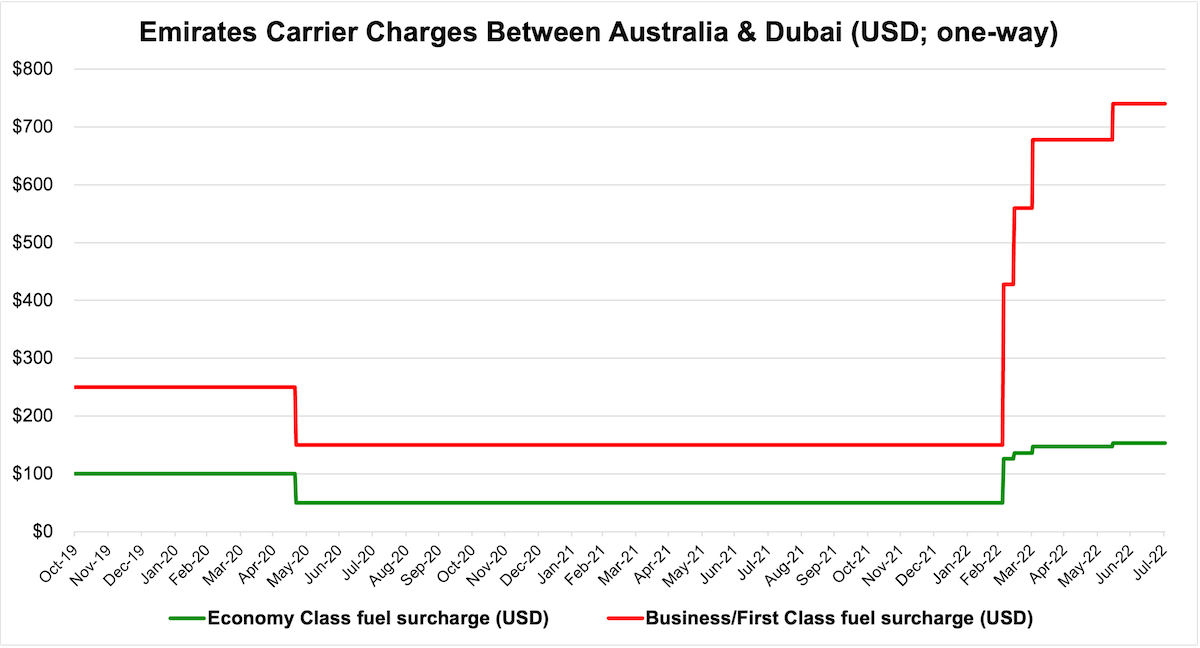
What’s with the eye-watering carrier charges?
When asked about the price increases, Emirates cited rising fuel prices.
“We have implemented a modest increase on the Carrier Imposed Charges applied to Classic Rewards, as like other airlines, Emirates has been impacted by the surge in fuel prices,” an Emirates spokesperson said.
“This has enabled us to respond to market dynamics, without increasing the number of Miles required for flight rewards, and also allows us to reduce or remove these charges more easily in the future, where appropriate.”
So, does this mean fuel surcharges will come down again will the fuel price decreases? Hopefully, because it currently appears that when it comes to Emirates fuel surcharges, the sky is the limit!
It is certainly the case that fuel prices have increased this year, but the increases in Emirates fuel surcharges have arguably been disproportionate.
In the last six months, the Emirates carrier charge on a Business or First Class reward from Australia to Dubai has increased from around USD150 to USD740 per flight. That’s almost a 500% increase, which we would not describe as “modest”.
Interestingly, the fuel surcharges currently seem to be much lower on Emirates fifth-freedom routes that don’t start or end in Dubai. Who knew that fuel was so much cheaper outside of the United Arab Emirates? 😉
Given the high surcharges and the lack of Emirates award seats available to Qantas Frequent Flyer members at the moment, it seems that Emirates is prioritising fare-paying customers rather than frequent flyer redemption bookings at the moment. Many of Emirates’ flights to and from Australia are currently full, especially in premium cabins, so this makes sense from a business perspective.
Emirates is also currently investing heavily in upgrading its First Class product, including by improving the champagne offered and providing “unlimited” caviar. Clearly, the airline is hoping to fill those First Class seats with more profitable, paying customers. Emirates also recently announced that it will refurbish around half of its fleet with new seats.
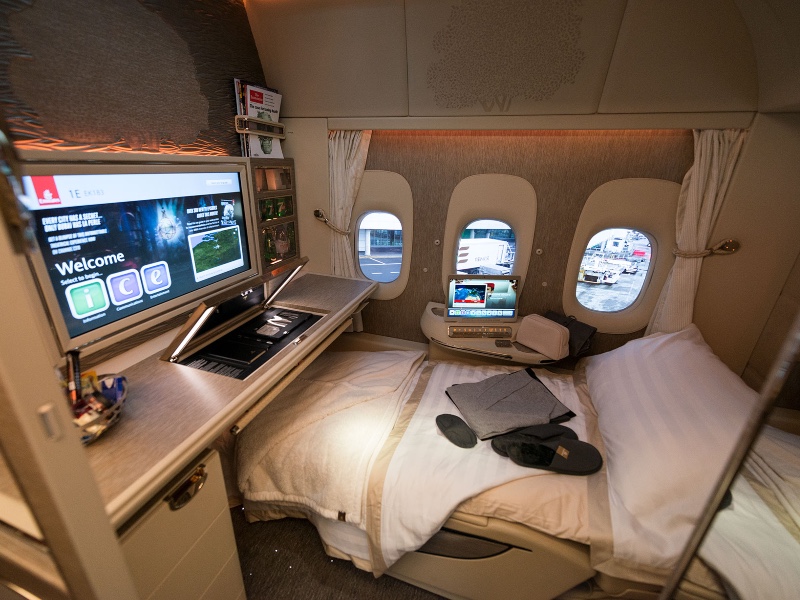
It seems that this strategy is working well for Emirates. It’s just unfortunate for Emirates Skywards and Qantas Frequent Flyer members who’ve been saving up their points for years in the hope of redeeming for Emirates Business or First Class, only to have their dreams dashed.
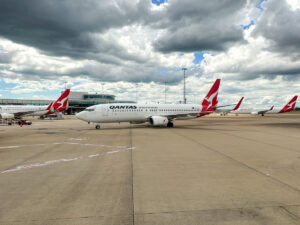

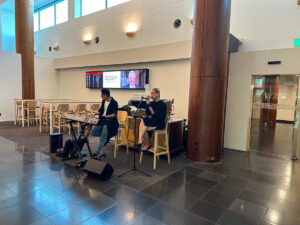
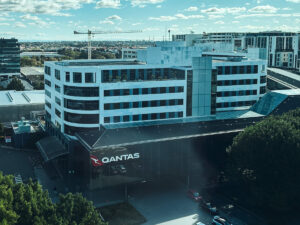


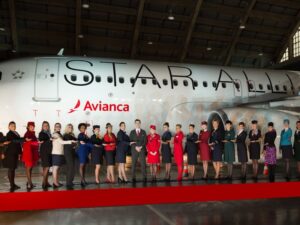




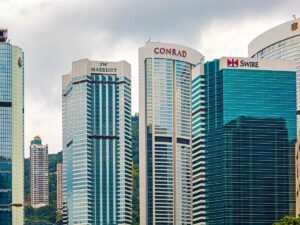







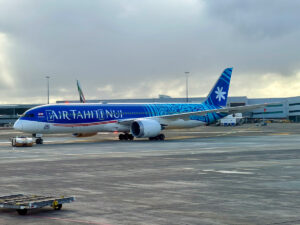
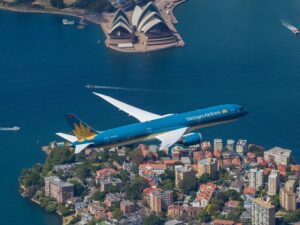
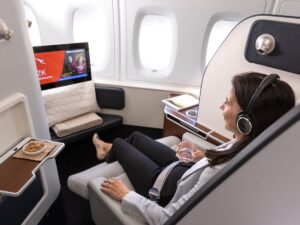





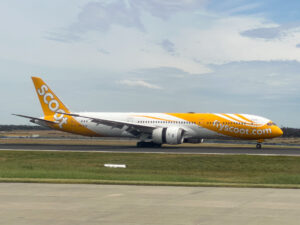







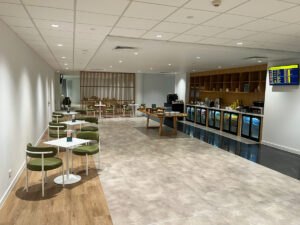
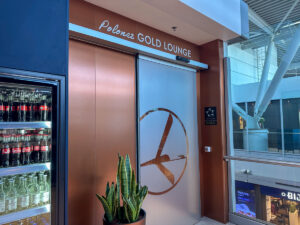



































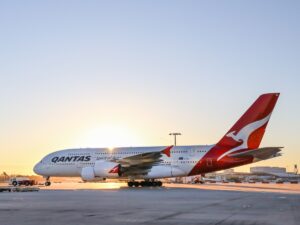






Community Comments
Loading new replies...
Join the full discussion at the Australian Frequent Flyer →